Archive for Bilingualism
December 8, 2018 @ 10:39 am· Filed by Victor Mair under Bilingualism, Diglossia and digraphia, Language and education
I could see this coming years ago. The writing was on the wall:
"Some subjects in Taiwan's schools to be taught in English: As part of the goal of making Taiwan a bilingual country by 2030, some subjects in schools will be taught entirely in English", by Keoni Everington, Taiwan News, Staff Writer (2018/12/6/18)
That's quite an ambitious goal (a bilingual country by 2030), is it not? Especially since English will be one half of the bilingual equation, while a mixture of Sinitic and Austronesian languages will together constitute the other half, though Mandarin will doubtless be the main component of the latter, at least initially.
Read the rest of this entry »
Permalink
October 13, 2018 @ 4:22 pm· Filed by Victor Mair under Bilingualism, Diglossia and digraphia, Language and advertising, Neologisms, Transcription, Uncategorized
Recently, Tong Wang's husband told her that he would not be home for dinner because he was going out with friends to this place:

Read the rest of this entry »
Permalink
June 28, 2018 @ 6:52 pm· Filed by Victor Mair under Bilingualism, Diglossia and digraphia
From an anonymous contributor (photo taken at noon yesterday):
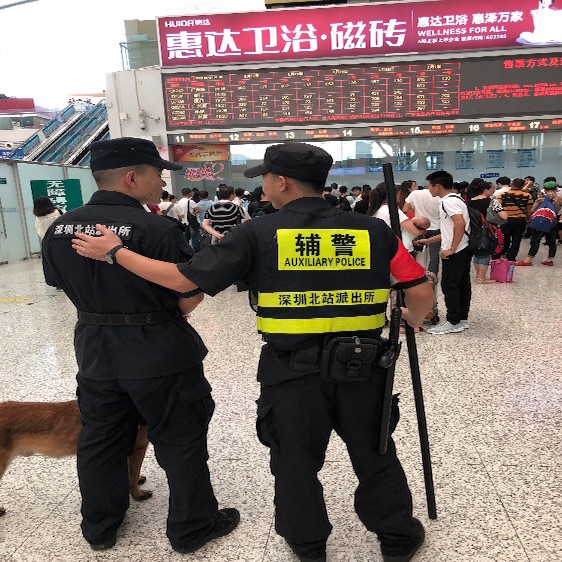
Read the rest of this entry »
Permalink
June 22, 2018 @ 11:44 am· Filed by Neal Goldfarb under Bilingualism, Language and medicine, Language and the law, Language and travel
Let me try to pull together the information from my previous two posts, and add information that I'm seeing on Twitter. I will update this as I get more information.
Service-providers looking for interpreters. Much of the interpreting that is needed can be done by phone, so geographic location shouldn't be an issue.
RAICES: volunteer@raicestexas.org.
American Immigration Council. The person to contact is Crystal Massey, but the website doesn't give her email address. The general "Contact Us" page is here. (Added June 24, 2018.)
Service-providers that might need interpreters. These are names of groups that someone posted on Twitter; I don't know whether they're actually looking for interpreters.
Read the rest of this entry »
Permalink
June 22, 2018 @ 1:45 am· Filed by Neal Goldfarb under Bilingualism, Language and medicine, Language and the law, Language and travel, Translation
In addition interpreters being needed to help detainees communicate with their lawyers, there is an urgent need for medical personnel who can speak Central American indigenous languages (or, failing that, presumably for interpreters to work with English- and Spanish-speaking medical personnel). This is a Facebook post that Emily Bender has sent me:
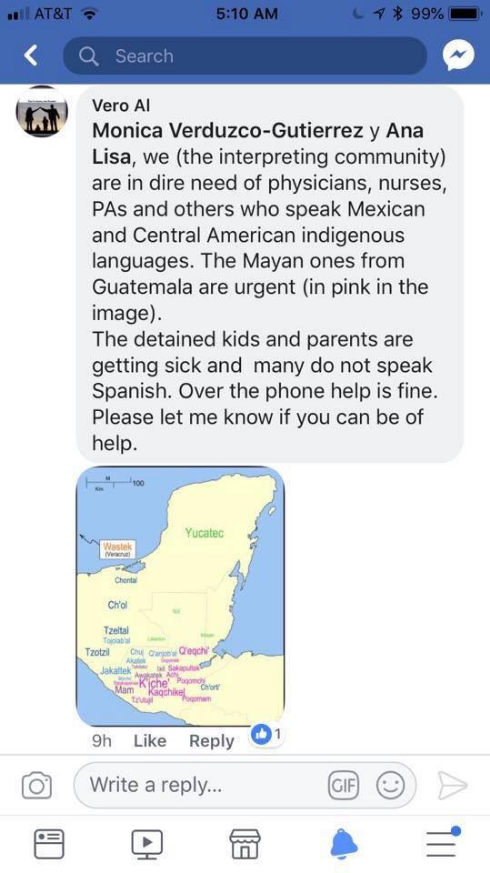
Read the rest of this entry »
Permalink
May 4, 2018 @ 12:23 am· Filed by Victor Mair under Bilingualism, Headlinese, Multilingualism, Writing systems
Bob Bauer sent in this photograph of a recent headline from a Hong Kong newspaper:
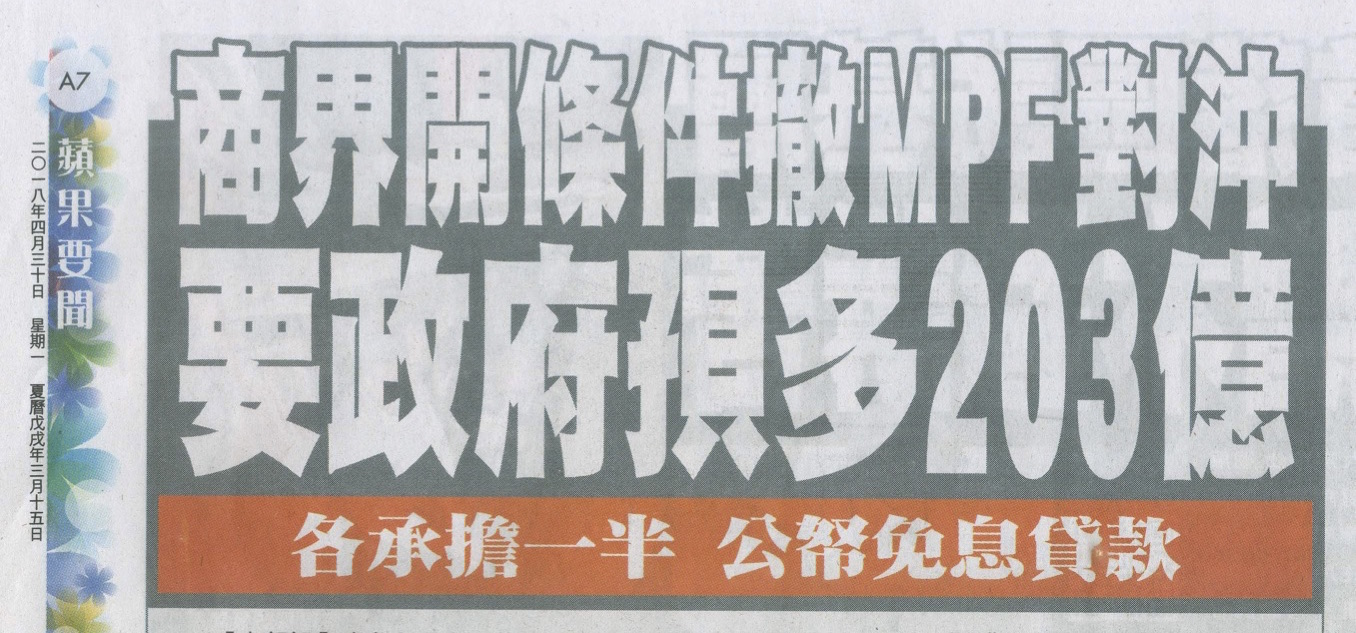
Read the rest of this entry »
Permalink
April 22, 2018 @ 10:46 am· Filed by Victor Mair under Bilingualism, Borrowing, Code switching, Language and business
From an anonymous correspondent, who photographed it at Alibaba's Hangzhou campus — in, ahem, a restroom:

Read the rest of this entry »
Permalink
April 21, 2018 @ 9:41 pm· Filed by Mark Seidenberg under Bilingualism, Code switching, Language and education, Literacy, Reading
Read here now: the fine profile of my friend and research collaborator Julie Washington in the April issue of the Atlantic magazine. It’s been out for a while but you might not have seen it if, as in Madison WI where I live, it’s still February (we had the biggest snowstorm of the season this week). Julie is a professor at Georgia State University and the head of their program in Communication Sciences and Disorders. She’s an expert on the structure, acquisition, and use of African American English (AAE), and her research focuses on how use of the dialect affects reading achievement and educational progress, the assessment of children’s language and reading, and the identification of developmental language and reading disorders. The article describes her view that children who speak AAE in the home and community will make better progress in learning to read, and in school, if they can code switch between AAE and the mainstream dialect, often termed (though not by her) "standard" American English.
Read the rest of this entry »
Permalink
February 16, 2018 @ 8:52 pm· Filed by Victor Mair under Bilingualism, Diglossia and digraphia, Quizzes, Writing systems
Sticker at a gas station near the Richmond airport, courtesy of Jonathan Smith:
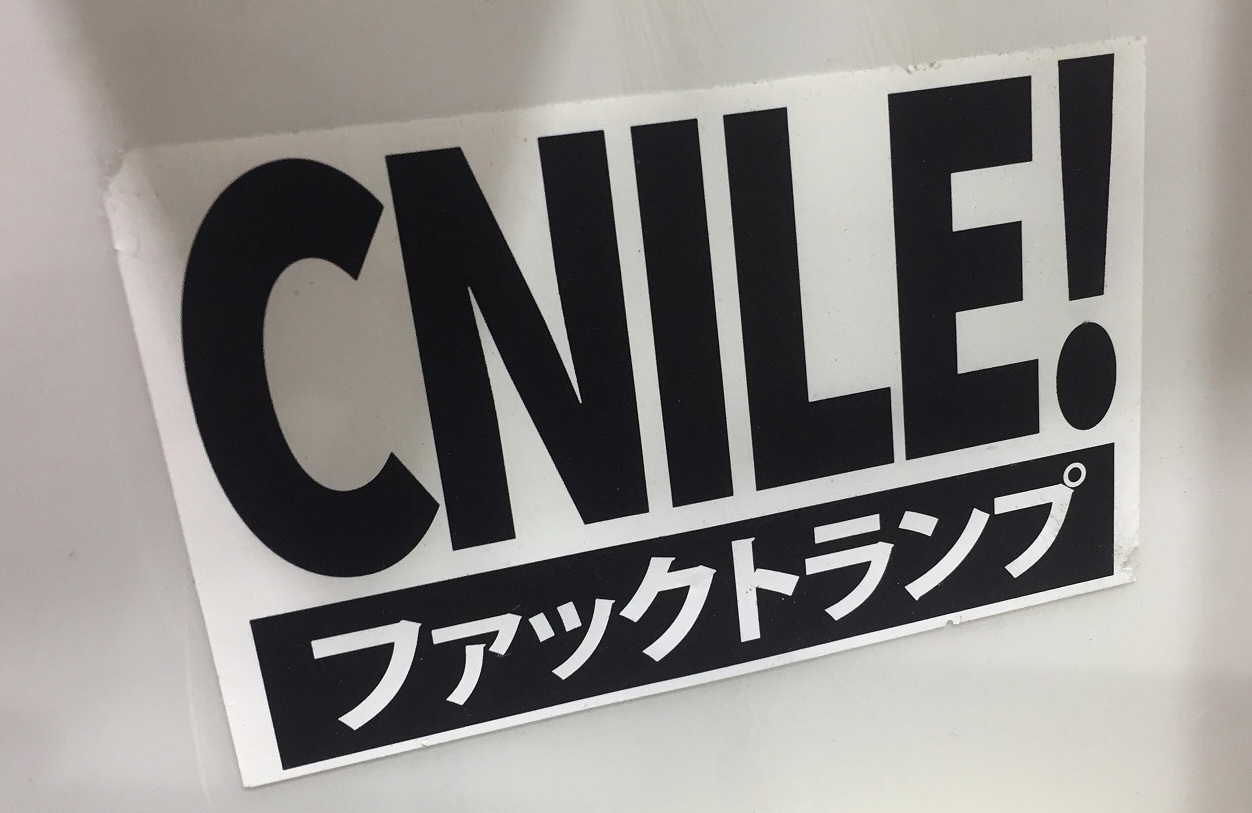
Read the rest of this entry »
Permalink
January 10, 2018 @ 9:11 pm· Filed by Victor Mair under Bilingualism, Found in translation, Language and the movies
From Elijah Granet:
I am writing because of this picture I recently saw on the New York Times website:
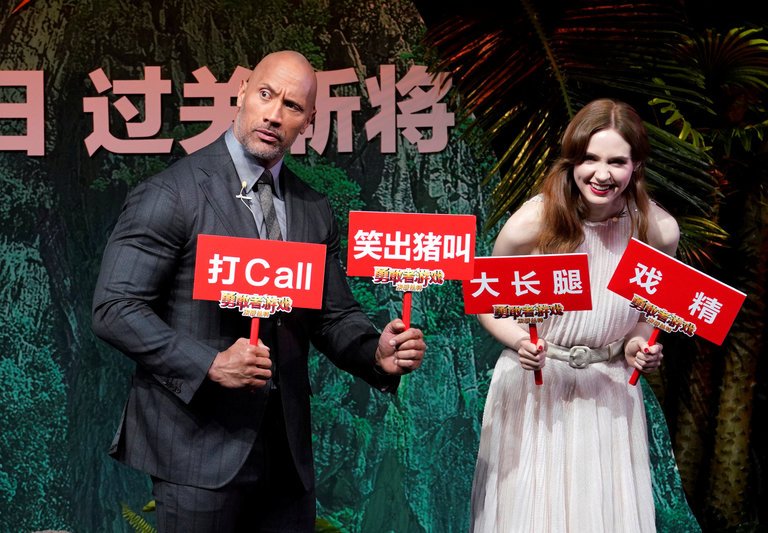
Read the rest of this entry »
Permalink
December 28, 2017 @ 5:47 pm· Filed by Victor Mair under Bilingualism, Borrowing, Morphology
A Shanghainese friend of a friend just sent him a link to a curious video, and he forwarded it to me. It looks like a Nike-sponsored rap song with five different fāngyán 方言 ("topolects") and lots of English.
My friend asked, "I wonder to what degree the Hànzì 汉字 ("Chinese characters") in the subtitles match the actual lyrics."
The video comes via Bilibili, which sometimes seems to load very slowly. It is also available on iQIYI and DigitaLing. Subtitles are more clearly visible in the Bilibili and DigitaLing (last one) versions.
The main questions, at least for me, are which topolects are presented, how faithful the presentations are, and how well the subtitles represent what is being said.
Read the rest of this entry »
Permalink








